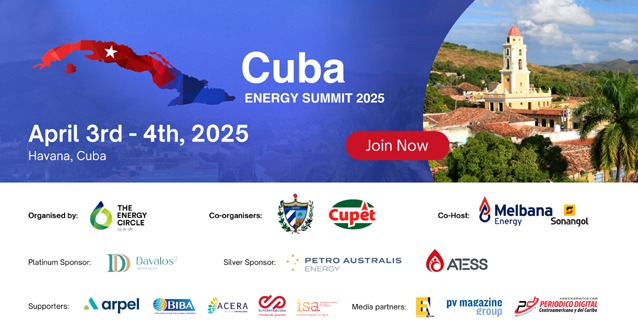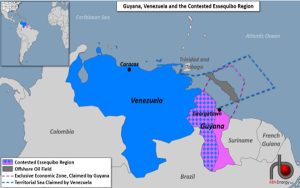|Guyana’s Refinery Plans Remain Viable Amid New Overseas Ventures and Chevron-Exxon Dispute

Stephen Cunningham, Argus Media
GEORGETOWN
EnergiesNet.com 02 21 2025
Guyana’s tentative plans to start a venture with a US midstream company to refine its oil overseas and bring it back into the country for storage and distribution does not necessarily mean a domestic refinery is no longer an option.
“I would not put it off the table,” natural resources minister Vickram Bharrat told Argus today on the sidelines of the Guyana Energy Conference and Supply Chain Expo in Georgetown, Guyana. “But what we were told by many companies is that a 30,000 b/d refinery might not be economical, that we may have to do 50,000 b/d or 100,000 b/d.”
Such a refinery would require a guarantee for sufficient feedstock before a company would agree to build it, he said.
The government may be in a better position to pursue both options when the ExxonMobil-led consortium behind the giant offshore Stabroek block development has six floating production storage and offloading (FPSO) units up and running in the next few years, he said.
Chevron-Exxon dispute not a concern
Guyana is not taking sides in the dispute between ExxonMobil and Chevron over the future of Hess’ 30pc stake in Staebroek, Bharrat said, as it has “no particular preference” as to how it plays out.
Chevron’s pending $53bn takeover of Hess was largely driven by its stake in Staebroek, but ExxonMobil argues it has a right of first refusal for Hess’ share. An international arbitration case will resolve the issue in May.
“Our position was clear from the start,” Bharrat said. “If that was not going to affect the operations in Guyana — and we were told it will not — then we are fine.”
Guyana has a “good relationship” with Hess, which has agreed to buy carbon credits from the government, he said.
“We have no issue with Chevron coming in either,” he said. “Chevron would add value to the Guyana basin.”
With general elections coming up in Guyana later this year, there are signs the opposition party may seek to renegotiate oil contracts. But Bharrat said the current administration is not renegotiating the Stabroek production sharing agreement it signed previously.
Bharrat repeated his enthusiasm for the country’s natural gas potential, including a plan for a gas processing facility which could help the company diversify the economy away from its oil wealth.
“That project will cater for a small amount of fertilizer production, especially for local consumption, because we import a lot of fertilizer and we’re expanding our agricultural sector,” he said.
Guyana’s relatively new entry into global oil markets means the threat of the “oil curse” — in which oil-rich countries tend to have less economic and social stability — still looms large. But Bharrat said that so far “… we’ve been doing a good job.”
Other up-and-coming oil producers such as Namibia and neighboring Suriname have visited Guyana to learn how the government has developed its oil sector in such a short period of time, he said.
argusmedia.com 02 20 2025












